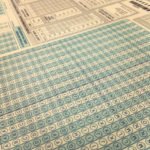How to Self-Study for the SAT: Smarter, Not Harder
This article was written based on the information and opinions presented by Shravya Kakulamarri in a CollegeVine Livestream. You can watch the full Livestream for more info.
What’s Covered:
Identify Your Strengths and Weaknesses
Take Practice Tests
You can read your SAT prep books forever, but that won’t get you very far if you aren’t identifying your strengths and weaknesses in the process. After you’ve taken a diagnostic test, determine where you’re struggling and what’s coming easily to you.
For the SAT, you should look at your responses and read the explanations in the answer key, which are usually offered in third-party resources. This will vary between prep materials and practice exams. The ACT even has an official prep book that offers in-depth explanations of the answers.
Answer keys will help you zero in on the question type along with the question itself, allowing you to understand what the different subcategories are that are giving you trouble. Again, keep track of your specific mistakes. We suggest maintaining a notebook of your errors.
Review Your Mistakes
Go over the material in depth. This will help you identify where you are struggling. Be sure to keep track of mistakes. Additionally, try to see where you went wrong. For instance, did you just not understand what the question was asking, or was it a genuine, conceptual mistake?
Once you understand the root cause of your error, you can resolve it going forward. Remember: it’s okay to make mistakes — this is a practice test.
Get down to the nitty-gritty. Is it Math or English that’s bringing your score down, or is it a particular subsection? While you don’t want to neglect studying for topics that are strong for you, you should be focusing more on weaker topics.
Study Smart, Not Hard
Determine Your Test-Taking Strategy
Taking practice tests and tracking your errors can get a bit tedious, but it will serve you well. When you struggle with a topic, focus an entire period of time on tackling that concept.
You simply won’t be able to get through the test in the amount of time you have, so you’ll need to figure out time management strategies to handle the questions you’re consistently getting wrong. By targeting your weak areas based on evidence from the records you’re keeping, you will develop a better routine.
You won’t waste time focusing on your strong areas; instead, you will be paying particular attention to the areas that are difficult for you.
Take Breaks Between Study Sessions
Remember to take a break of at least a couple of hours to avoid burnout after a grueling diagnostic test. Don’t take more than a day because you want the questions to stay fresh in your mind — you’ll still remember the content in the passages you read, for example.
Improve Your SAT Scores
Self-studying the SAT can be the answer for many students, but that doesn’t mean you don’t need help with your college applications. If you’re looking for ways to improve your test scores and polish your applications, work with expert college counselors. They can help you with everything from an SAT strategy to essay guidance. Learn more about how our experts can help you achieve your goals.

![Can You Answer These 5 Reading SAT Questions? [Quiz]](https://blog.collegevine.com/wp-content/uploads/2017/04/survey-opinion-research-voting-fill-159353-150x150.jpeg)

